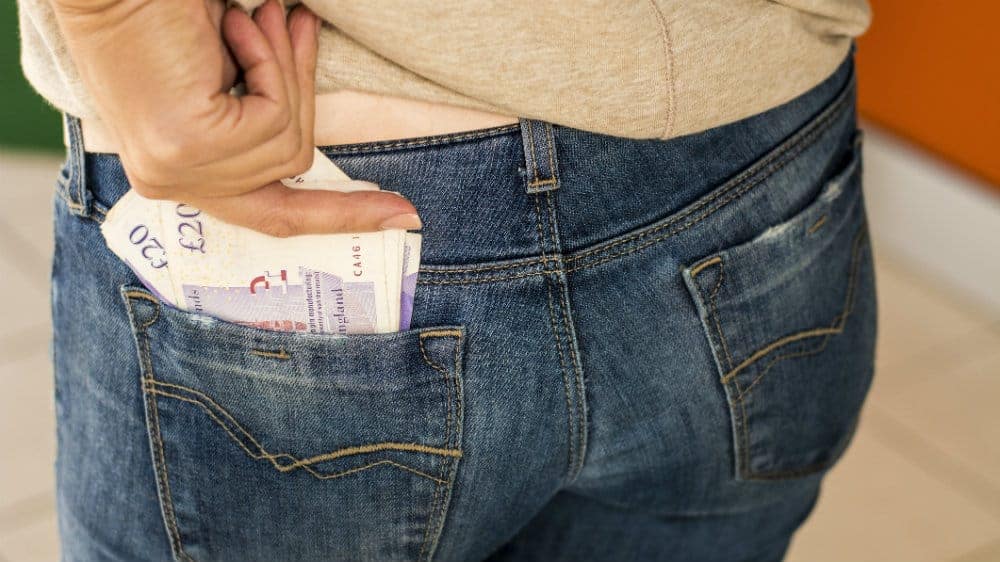Share this page:
Tax code season has arrived. It’s the time of year when HMRC sends out millions of letters to households informing individuals of their tax code.
Many people either don’t understand or don’t pay much attention to this letter. Yet, if your tax code is incorrect, it’s your responsibility to inform HMRC.
Many people are expected to be on the wrong tax code. If that includes you, you could be in line for a refund. Here’s what you need to know.
What is tax code season?
Tax code season is when HMRC sends out letters to taxpayers, informing individuals of their tax obligations for the current tax year. The letter also displays each individual’s tax code.
There are many different tax codes. And every year, social media is awash with stories of people being refunded because they were on the wrong code. As a result, we know that mistakes are made, particularly for individuals who have changed jobs within the current tax year or moved between self-employment and salaried positions.
Importantly, it’s your responsibility to check that your tax code is correct. If you don’t check, it’s possible you could be underpaying or overpaying tax.
While you may not mind if you’re underpaying, HMRC will eventually catch up with you, meaning you’ll have to repay a potentially large sum in future. However, if you’re overpaying tax, then you could be in line for a juicy refund.
How can you check whether you’re due a tax refund?
You may have already received a letter from HMRC telling you your tax code for the year. If you haven’t received it, you should get it through your letterbox soon.
Tax codes may seem gibberish, but they are pretty straightforward once you understand what each code stands for. For example, most employees are likely to be on the ‘L‘ tax code, which applies to those who are entitled to the standard tax-free Personal Allowance. (The tax-free allowance is £12,570 for the current 2021/22 tax year).
To check whether you’re likely to be on the right tax code, take a look at the gov.uk website, which lists all tax codes, and outlines what each one means.
How can you get a refund if your tax code is incorrect?
If you feel your tax code is incorrect, you can contact HMRC on 0300 200 3300. You’ll then be given an opportunity to explain why you think your code may be incorrect.
Alternatively, you can notify HMRC by signing into your personal tax account. You’ll need a Government ‘Gateway ID’ to do this.
If HMRC agrees that you’ve overpaid tax, your employer will be notified so they can automatically change your tax code so you won’t overpay in future. Meanwhile, HMRC will refund previous over-payments through your salary.
If you’re self-employed, or you wish to claim for previous tax years, then you can claim your refund online. There’s also an option to have HMRC provide a refund via cheque.
It’s worth knowing that you can go back up to four tax years to claim a refund.
What happens if you’ve underpaid tax?
If you find your tax code is incorrect and you’ve underpaid tax, you’ll have to repay HMRC what you owe.
If what you owe is less than £3,000, then HMRC is likely to modify your current tax code. This means you won’t have to pay it all back at once.
However, if it’s more than this, then you can expect a bill through the post that you’ll be expected to pay within 30 days. However, if you’ll struggle to pay it, it’s worth contacting HMRC to work out a repayment plan.
HMRC can go back up to 20 years for tax underpayments.
Want to know how much income tax you pay? See The Motley Fool’s income tax calculator.
The content in this article is provided for information purposes only. It is not intended to be, nor does it constitute, any form of tax advice. Readers are responsible for carrying out their own due diligence and for obtaining professional advice before making any investment decisions.
Was this article helpful?
YesNo
About the author
Karl is a writer specialising in investing and personal finance content. He regularly contributes articles on savings, bank accounts, mortgages, and loans. He was previously a Personal Finance Writer for MoneySavingExpert.
Share this page:
Some offers on The Motley Fool UK site are from our partners — it’s how we make money and keep this site going. But does that impact our ratings? Nope. Our commitment is to you. If a product isn’t any good, our rating will reflect that, or we won’t list it at all. Also, while we aim to feature the best products available, we do not review every product on the market. Learn more here. The statements above are The Motley Fool’s alone and have not been provided or endorsed by bank advertisers. John Mackey, CEO of Whole Foods Market, an Amazon subsidiary, is a member of The Motley Fool’s board of directors. The Motley Fool UK has recommended Barclays, Hargreaves Lansdown, HSBC Holdings, Lloyds Banking Group, Mastercard, and Tesco.
This post was originally published on Motley Fool




